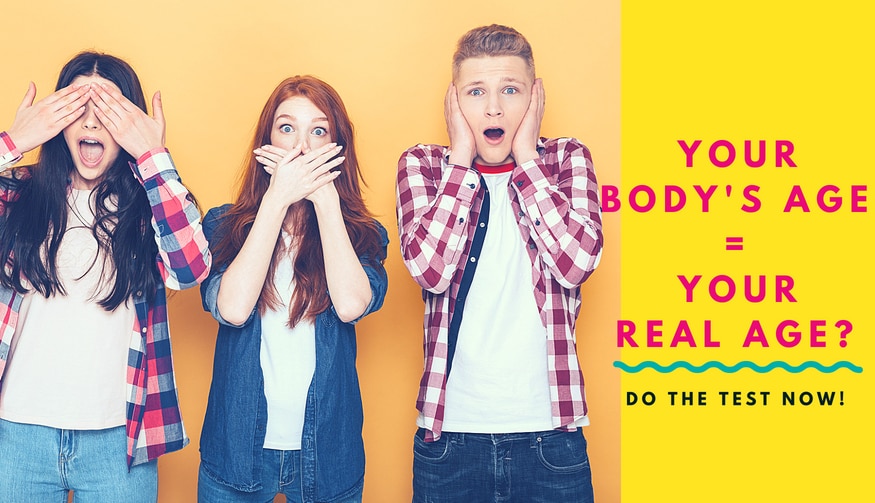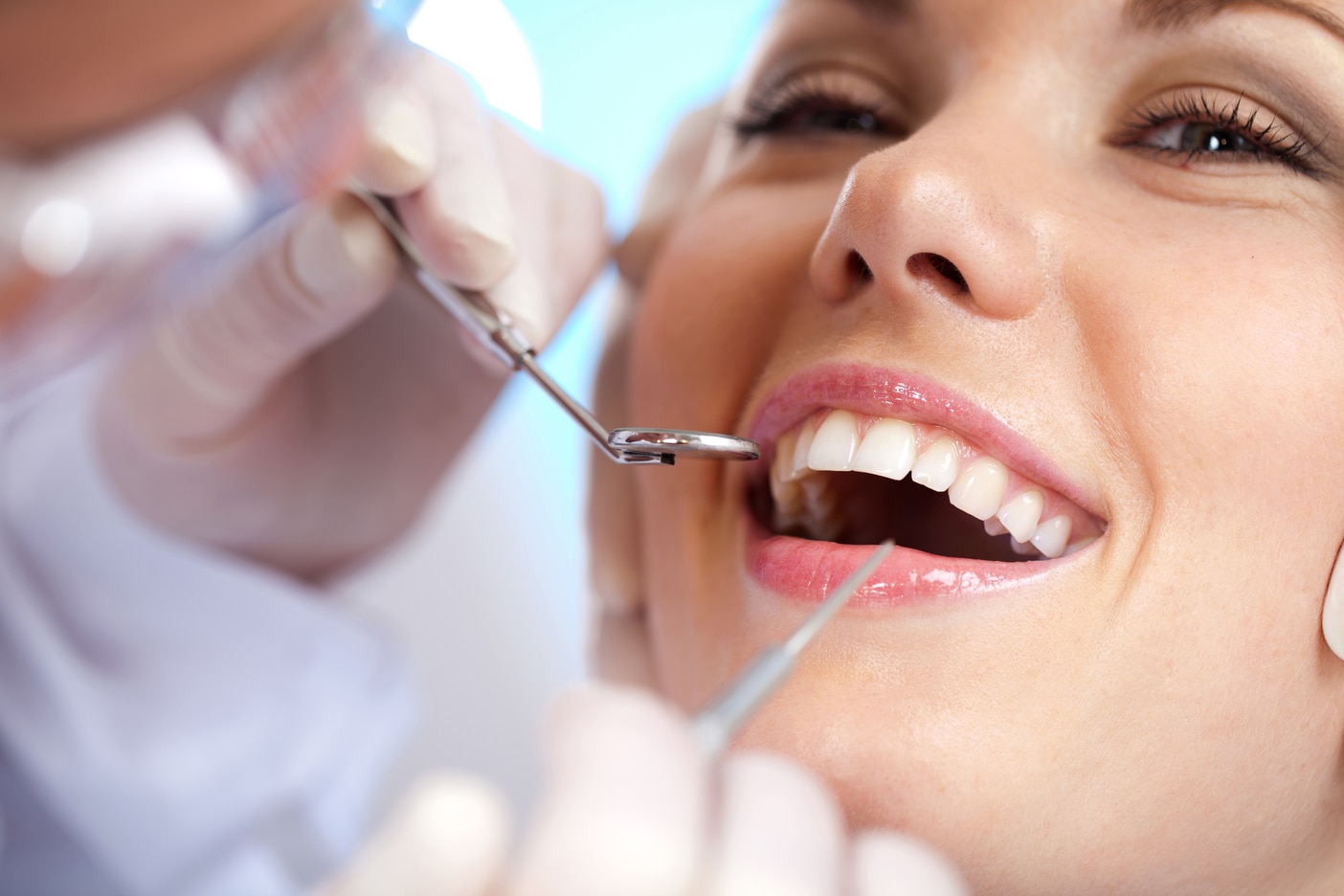
What is your age – your real age? While nearly everyone knows their birth date, a body can look and function like that of a significantly younger or older person depending on physical condition and lifestyle. That is to say, your chronological age might be quite different from your biological age. If you find that you have bad memory, low skin elasticity and feel out of breath when going upstairs, then your “body age” may older than your actual age. Let’s do the test below to find out your biological age and see how you can improve your health.
Brain test
Take 7 as the interval, continue decreasing 7 from 100, read the number or think in heart until the number is zero.
Standards: Generally, persons under 40 years old should not exceed 20 seconds; 40-60 years should not exceed 40 seconds. If you spend less than the above figures, then the biological age is the actual age minus 2 years old, and if you exceed it, you will be 2 years older.
Skin test
Place the palm of your hand on a flat surface, firmly pinch the skin on the back of the hand with the other hand, keep it for 1 minute and relax. After that, observe how long it takes for the skin to return to normal colour.
Standard: If it takes less than 1 second, decrease the age by 3 years; take 1 to 2 seconds, then your biological age is the same as your actual age; spend 3 to 4 seconds, then increase your biological age by 1 year; spend 5 to 10 seconds plus 2 years; 11 to 30 seconds plus 3 years old.

Stand on one leg, and blend the other leg’s knee to the buttocks. Press your hands on your buttocks and close your eyes, calculate how long your body will lose its balance.
Standard: If you can maintain for 1 minute, then your biological age is the actual age minus 4 years old; if you keep 30 seconds, you will decrease by 2 years; for those who can only persist for a few seconds, add 3 years on your biological age.

Eye test
Touch one end of a ruler perpendicular to the cheekbone under the eye, hold a newspaper in the hand and move it slowly along the ruler. When the word in the newspaper slowly becomes blurred, ask others to read the scale on the ruler.
Standard: If the distance is less than 15 mil meters, the biological age is the same as the actual age; when it is between 16 and 30 mil meters, the age of the body should be increased by 1 year; when it is between 30 and 60 mil meters, it is increased by 2 years; when it is between 60 and 90 mil meters, it is increased by 3 years; If you exceed 90 gel meters, your biological age is 4 years older than your actual age.
Lung test
Take a normal size balloon and a 30-mil meter rule, take a deep breath, and blow all the air into the balloon to measure the width of the balloon.
Standards: Below 11 cm plus 5 years old; 11 to 14 cm plus 3 years old; 15 to 18 cm plus 1 year old; those over 18 cm can deduct 3 years old.

Ear test
Listen to the radio channel you hear daily and adjust the volume to one forth of the usual level.
Standard: Those who do not hear clearly plus 5 years old; if they can only hear clear background music or some phrases, add 3 years old; basically understand the content plus 1 year old; hear all the words can be reduced by 2 years old.
Dental test
You can measure biological age by looking at bad breath and bleeding gums.
Standard: Gingival bleeding plus 4 years old; bad breath plus 1 year old.

Heart test
The proportion of body fat distribution predicts your heart health. The method is to measure the maximum hip circumference and the minimum waist circumference, and then calculate the minimum waist circumference and the maximum hip circumference ratio.
Standard: If the ratio is less than 0.7, your biological age is 1 year less than your actual age; between 0.85 to 1 plus 3 years old; more than 1 plus 5 years old.
After the calculation, the age of your body is drawn. If it is lower than your actual age, then congratulations. If it is higher than your actual age, it shows that you are aging, and you must increase your energy to maintain your health. Keep track on us and we will teach you how to improve your health.











